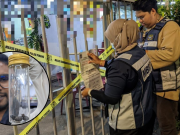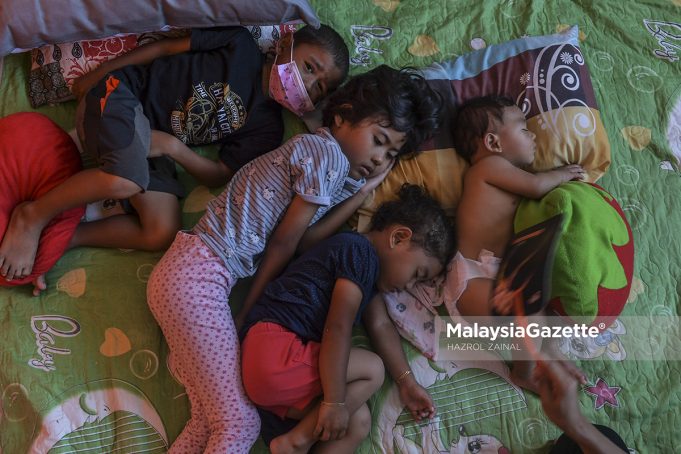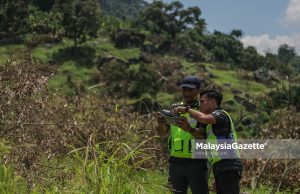The following article is submitted to the editorial of MalaysiaGazette by Dr. Abdul Rashid Bin Abdul Aziz, Senior Lecturer, Counseling Program, Faculty of Leadership and Management, Universiti Sains Islam Malaysia.
Even before the COVID-19 pandemic subsided, the country was once again shocked by the catastrophic floods which were described as among the worst of the century. The disaster has caused a lot of death and destroyed homes, vehicles, home appliances, livestock and many more. It also invites various water and food borne diseases such as food poisoning, cholera, typhoid fever, dysentery, and Hepatitis A. In addition, without us realizing this flood disaster has adversely affected emotional and psychological health. its victims regardless of whether they are adults or children. As of December 27, 2021, according to National Police Chief, Tan Sri Acryl Sani Abdullah Sani, a total of 48 people has been killed during the flood threats, while five more are still missing.
There is no doubt that the COVID-19 pandemic that has spread in the country since last year has affected many people, including children. In fact, the overlap with the recent flood disaster has made the current situation worse. When a flood disaster strikes, children are at more risk of being separated from their parents. This is because, they are easily swept away in the chaos during floods. In addition, this is also due to the natural habit of the children themselves where the curiosity level is high, and they like to be ‘adventurous’ until they forget about situations that can endanger themselves. These young children are too raw to be overly sensitive regarding the aspects of their own safety.
Indeed, among the most worrying implications happening to children is related to their level of mental health. When compared to adults, children are more likely to be affected by mental health issues because they are still raw and immature to deal with the stress. The horrible situation during flood disasters will make children easily feel anxious and worried as well as create a sense of insecurity within themselves. This is due to their limited cognitive ability which in turn makes them more prone to mental disorders when faced with stress as compared to adults.
In fact, children are also the most vulnerable individuals to the effects of situational and climate changes during flood. Their small body size makes their bodies fail to regulate heat very well thus causing them to easily get cold in times of humid and cold climates during floods. They are also at risk of getting water and food borne infections because of immature immune systems. In addition, if they become infected, their health status is more likely to deteriorate faster and the recovery period for them becomes longer.
In whatever circumstances strike, issues involving the welfare and care of children cannot be compromised. Parents need to be more vigilant when dealing with this issue. Supposedly, we need to work harder to protect children because they are our hope to become great leaders in the future. These small children should not be left unattended during this flood season. At this point, the fact is that they are surrounded by various threats and dangers including the threat of COVID-19 infection and the threat of flood disasters. This should not be taken lightly and easily by parents because if parents are negligent and careless, it can be fatal.
Finally, psychological and emotional support for this group is also very much needed, especially during the post-flood phase to ensure that their psychological, emotional and mental development is not disrupted by the disaster. Unsafe living factors can affect a child’s mental health. Therefore, parents are advised to always accompany their children and talk to them. Words of reassurance are very important to reassure them that this situation is under parental control besides it can provide an emotional relief for the child at the same time.
In conclusion, when a disaster occurs, the welfare aspect of children should be managed holistically where it should include elements such as physical, emotional, spiritual, and social aspects so that children can survive this crucial period safely.
Dr. Abdul Rashid Bin Abdul Aziz,
Senior Lecturer, Counseling Program,
Faculty of Leadership and Management,
Universiti Sains Islam Malaysia.
Read More:
Floods: Death toll at 48, five still missing – IGP
Drowned in flood: Body of boy wearing face mask found

















